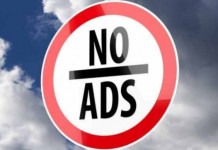 Why is it that so many methods of driving traffic and, hence, ad views to news web sites have the side effect of annoying readers?
Why is it that so many methods of driving traffic and, hence, ad views to news web sites have the side effect of annoying readers?
On SF Weekly, Dan Mitchell talks about a recent statement by the president of the Washington Post that awards don’t matter, and he wants more slide shows. Slide shows are a cheap way of driving up the number of page views on your website, as they basically make the reader click through ten, twenty, however many slides there are, pages at a time, with a new ad displayed on each page.
As Alexis Madrigal points out in The Atlantic, smarter publishers have learned that counting unique visitors is a much better metric of success than is the lunkheaded, simpleminded counting of pageviews. But the president of the Washington Post, Steve Hills, apparently loves pageviews anyway. So do many others. Madrigal includes a hilarious graphic showing how reader annoyance (measured in "milliblodgets") increases with every slide. Milliblodgets is a reference to Henry Blodget, the disgraced Wall Street analyst whose irredeemably shallow, reliably stupid website, Business Insider, is perhaps the most awful professionally produced publication ever to appear on the web. It is loaded with slideshows.
Mitchell also mentions the practice of forced-sharing apps on Facebook, in which news sites such as the Washington Post or Yahoo have an app that automatically shares any story you read on your newsfeed—and makes your Facebook friends have to install the app themselves if they want to read one of those shared articles.
And then there’s the practice of not offering full-text RSS feeds, to force people who read your RSS to come to your site if they want to read the whole article. It really annoys me when sites do that. (Yes, I know we did that. It wasn’t my decision.) It’s not so much that I don’t want to click through—I often do, though since I use Reeder with its Readability function, the site doesn’t get an ad view out of me anyway. The really annoying thing about it is that I’m frequently reading pre-downloaded RSS feeds when I’m not able to go online, so I can’t click through to read the whole thing at that point. This doesn’t exactly give me kind feelings toward the site in question.
And, of course, at root ads themselves are one of the most annoying things on the web. Fortunately, I mostly don’t have to put up with them since I run an ad-blocker on my computers—and thousands of other people feel the same way, judging from how popular ad-blockers or Readability-style reformatters or downloaders are.
So why do websites depend on annoying their readers to earn their revenue? In the end, it’s probably because they can’t think of any better way. But as the dead-tree versions of newspapers and magazines continue to dwindle, and Internet distribution makes up a proportionately larger and larger slice of their revenue, sooner or later they’re going to have to figure out some better way if they want to stay afloat. There are plenty of apps, like Readability or ad-blockers, that exist to cut out those sites’ annoyance factor—and hence their revenue. Publishers of those sites can complain about it all they want, but as long as they annoy their readers, their readers will find ways around it.

































This post is not going to contribute much of value, but…
The sharing-app thing is hugely negative for the Facebook experience, but it seems to be a somewhat successful method for data mining users on the site under current policies. I’m somewhat curious to see if they determine that harassing users without adding end-user value is a good strategy.
As for this site, the RSS info is so short that I rarely visit the site anymore. I click through to see if there are comments on the story, but I have no interest in discovering comments when I don’t even know the context of the story. Maybe if it were longer than eighty words (or whatever it happens to be), I could be hooked.
Of course, these things must work or the policies would probably change pretty quickly.
> Yes, I know we did that
And started doing again. Now the feed is barely two sentences. If this keeps up, I think I’ll just stick with Nate’s site.
RSS abridgment is bad. And it’s compounded by problems with the mobile formatted site (have switched to desktop view after mobile site ate a long comment I was trying to post). Ironically a blog that so often touts the joy of reading on phones and phone-size devices is now extremely painful to read on a phone. Boooo!!
Let us not forget obnoxious pop-up flash ads that fill the entire page and obscure the page while auto-loading sound. (Oh Teleread, what happened to my sweet, innocent favorite news blog? Why oh why have you tainted your credibility with ads louder and more obnoxious than a Jersey Shore episode? Blech.)
The funny thing about these deceptive practices is that they do nothing to enhance the readers’ experience and ultimately the reader is the customer. A loud obnoxious ad or other trick is not going to entice me to support products that I’m not interested in…and even if I am interested in a product, loud obnoxious ads are a good way to convince me to spend my dollars elsewhere.
These techniques are fundamentally deceitful–they are cooked up by marketing drones within the websites and ad networks and ad agencies themselves to get further advertising dollars from companies. I understand that companies demand premium placement and lots of attention since so many of these policies are holdovers from television advertising traditions…
But at the same time, such obnoxious techniques don’t convert more customers because they are so annoying to readers.
A well done, good small ad that offers a valuable product is the way to go if you want to be noticed and respected on the Internet.
— Bill Smith
http://www.BillSmithBooks.com
I haven’t read much of this article…sounds like you’re digging your own grave with it any way. But, it’s not ads, and it’s not just the multi page posts (slides is it?). Maybe you don’t do that here on Teleread (yes, I rarely come here any more) but instead you post those nonsense articles exclaiming yet another minor update to Calibre, or just regurgitating some one paragraph block quote from another site with no actually comment or opinion – this is Telereads way of trying to get more page views.
Still, in a world driven by Search Engines and their SEO, it doesn’t matter to the owners, as long as they earn the investment back, and then some.
Aggregating related news, while nothing special, is a good convenience service. I know, some day, I should get with the century and use RSS to get news from all sources I might want news from. In the interim, having a few blogs that aggregate most things I would be interested in (such as Calibre updates.) is great.
That said, I would not even be on the web anymore without some kind of flack block. And I notice that Teleread made it to my JS blacklist as well. Hmm….
I hate most modern websites. I do like how fancy they look but back in the 1990s and early 2000’s websites were more static. Things didn’t fly around the page, get in your face, or move in the corner of your eye for attention. Though the internet was slower and frustrating back them. But today it’s obnoxious. For example: 1. Googles search box flies up and to the left when you are trying to type something into it. 2. Bing is so flamboyantly colorful and eye grabbing that it’s obnoxious. And they in your face new desktop spamware is annoying. Yahoo is basically a magazine that needs to fully load before you can use their search box and they have all these animated flash ads that are moving all over the place so you can’t read any articles without noticing the movement in the corner of your eyes. Or having a random pop up slide in from the left or right and block what you are reading. Or you go to Accuweather or Weather .com and their high maintenance websites need to load all sorts of bells and whistles before you can simply check your local temp. Then they have huge flash banner ads that take up 30% of the screen or like Accuweather sometimes has a big huge block ad that takes up 90% of your screen. Anyway, I understand that they are making money off these ads but at the same time it’s killing the worthiness of their sites.
So you’re a shoplifter? That’s what Adblockers do, enable you to shoplift.
Imagine telling a shopkeeper that s/he better find a different revenue source because people don’t like to pay for stuff so they’re just going to find a way around your cash register.
If you don’t want to look at the ads, don’t visit the website!
HPatric, I think that’s a rather flawed analogy. A website is offered to the Internet; I am free to configure my browser to view that website in any way I like. There is no financial transaction here. The owners of the website are free to sell advertising, and when they do so, these days, their message to advertisers ought to include some information about their site demographics. It is incumbent upon advertisers to figure out how many eyeballs they will get for their money.
Shoplifting on the other hand is outright stealing. Look, I’ll agree that there is some validity to seeing pirating (getting through illegal means files that are otherwise offered for saile) as a sort of shoplifting (though even that is weak; most pirates were not otherwise going to buy the product, and they are not depriving the vendor of the product) but viewing a website with a software blinker is not a crime either factually or ethically. Rhetorical exaggerations do your case no good.